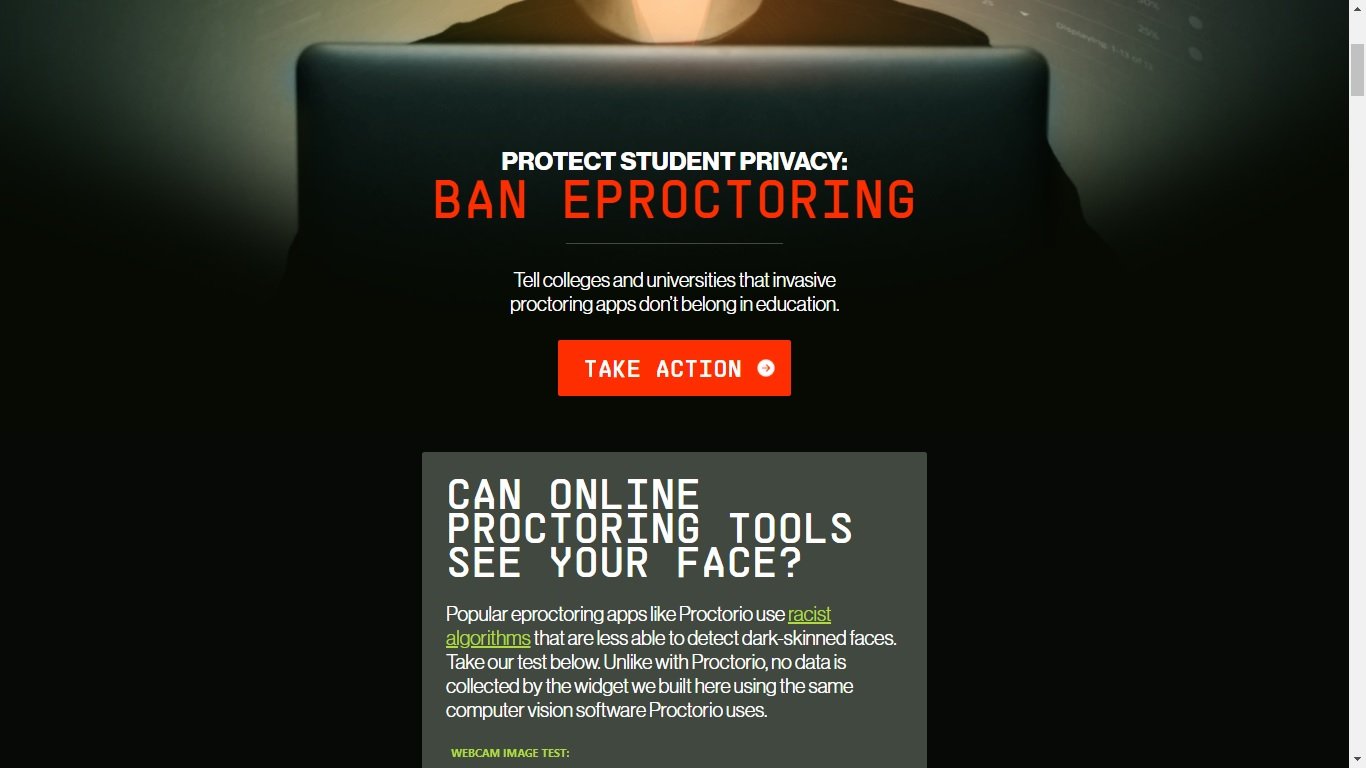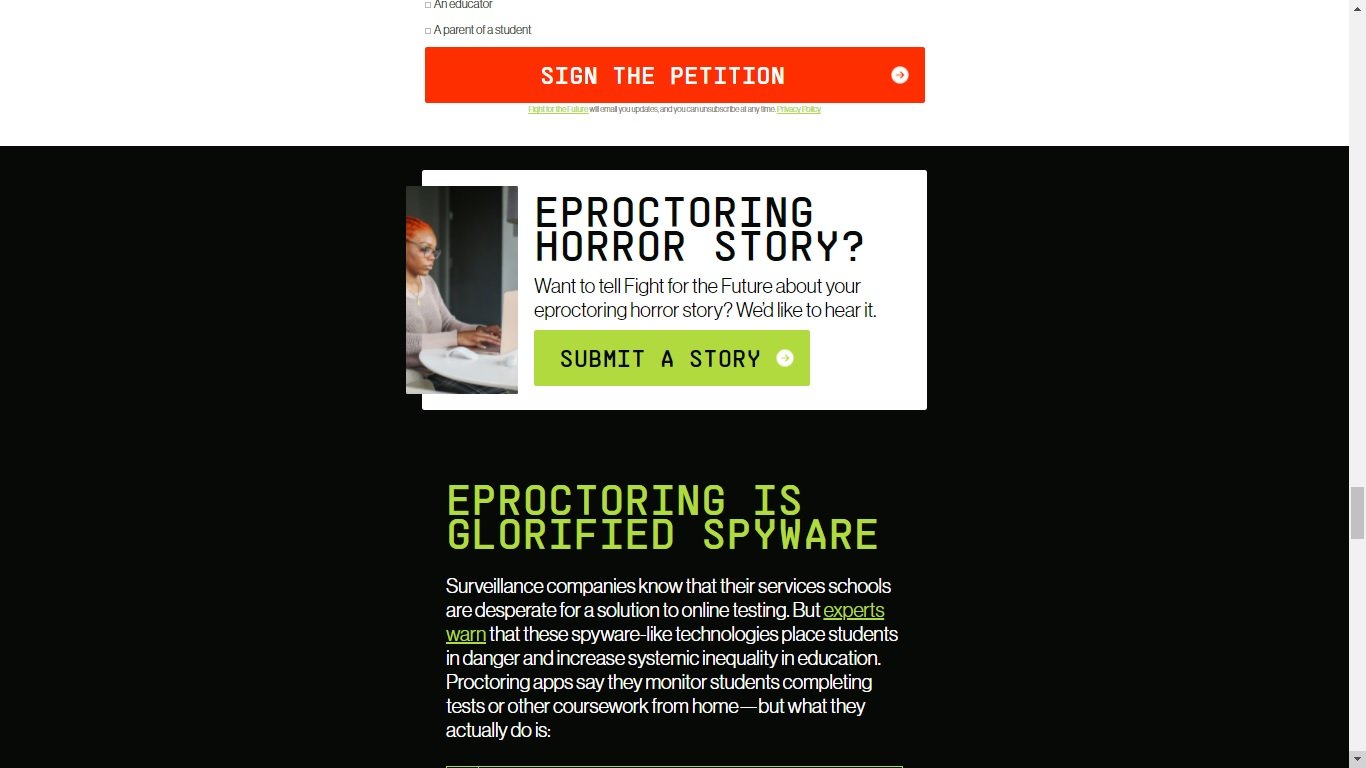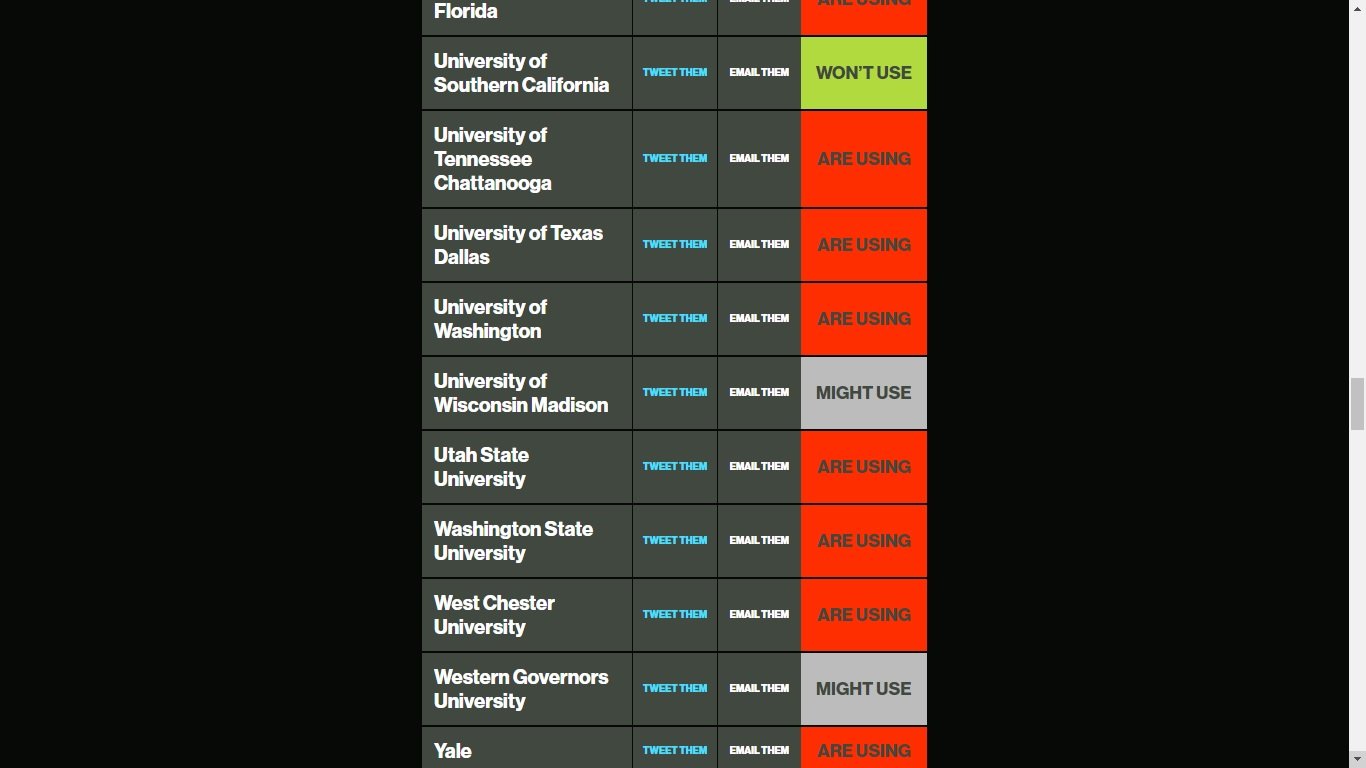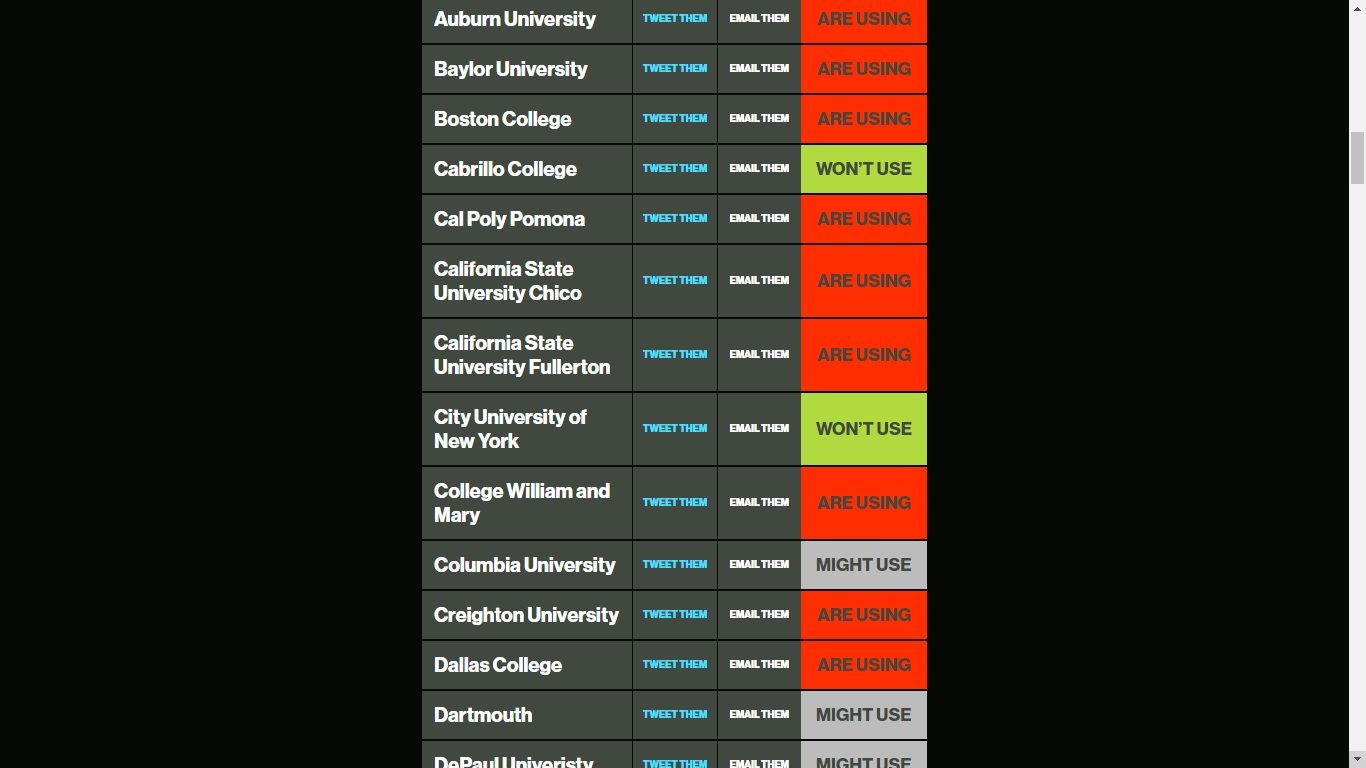The fight for Internet users’ privacy has become one of the priorities in this technological age of ours, with individuals and organizations trying to find the least invasive online spaces for our personal lives.
One of these organizations is Fight for the Future, a nonprofit effort focused on privacy, which prompted the launch of a website to list all universities and academic institutions that use or intend to use virtual monitoring software to keep students in check.

One of the biggest changes brought about by the pandemic was the transition to distance education, so many universities have taught multiple classes, courses and workshops remotely, using tools such as ProctorU or Proctorio to monitor students during their academic activities. In an exam, for example, universities can use these tools to monitor students through their webcams.
Needless to say, this practice has generated a great deal of controversy, as there is really no way to guarantee the privacy of students, faculty and administrative staff subjected to this kind of surveillance.
Despite the criticism, not a few universities have adopted the use of these tools. During the coronavirus lockdown, the vast majority of universities in the U.S. employed these systems, arguing that it was necessary to verify that students did not cheat on their exams submitted from home.
Fight For the Future conducted extensive research on the use of these tools in the coming school periods, discovering that these institutions plan to adopt the permanent use of ProctorU and Proctoral. The results of this research are available on the organization’s website.
In addition, on the home page of their website Fight for the Future enabled a webcam test to determine if a user is being monitored with one of these tools. Fight For the Future says the test uses the same computer vision software that monitoring platforms use, with the difference that no processing data is collected on the user’s system, an indicator on which tools like Proctorio are based.

Finally, the organization invites its followers to sign a petition addressed to academic institutions in order to stop this practice.
For more information on hacking incidents, cybersecurity, malware attacks and security tips, feel free to access the platforms of the International Institute of Cyber Security (IICS).

He is a well-known expert in mobile security and malware analysis. He studied Computer Science at NYU and started working as a cyber security analyst in 2003. He is actively working as an anti-malware expert. He also worked for security companies like Kaspersky Lab. His everyday job includes researching about new malware and cyber security incidents. Also he has deep level of knowledge in mobile security and mobile vulnerabilities.













